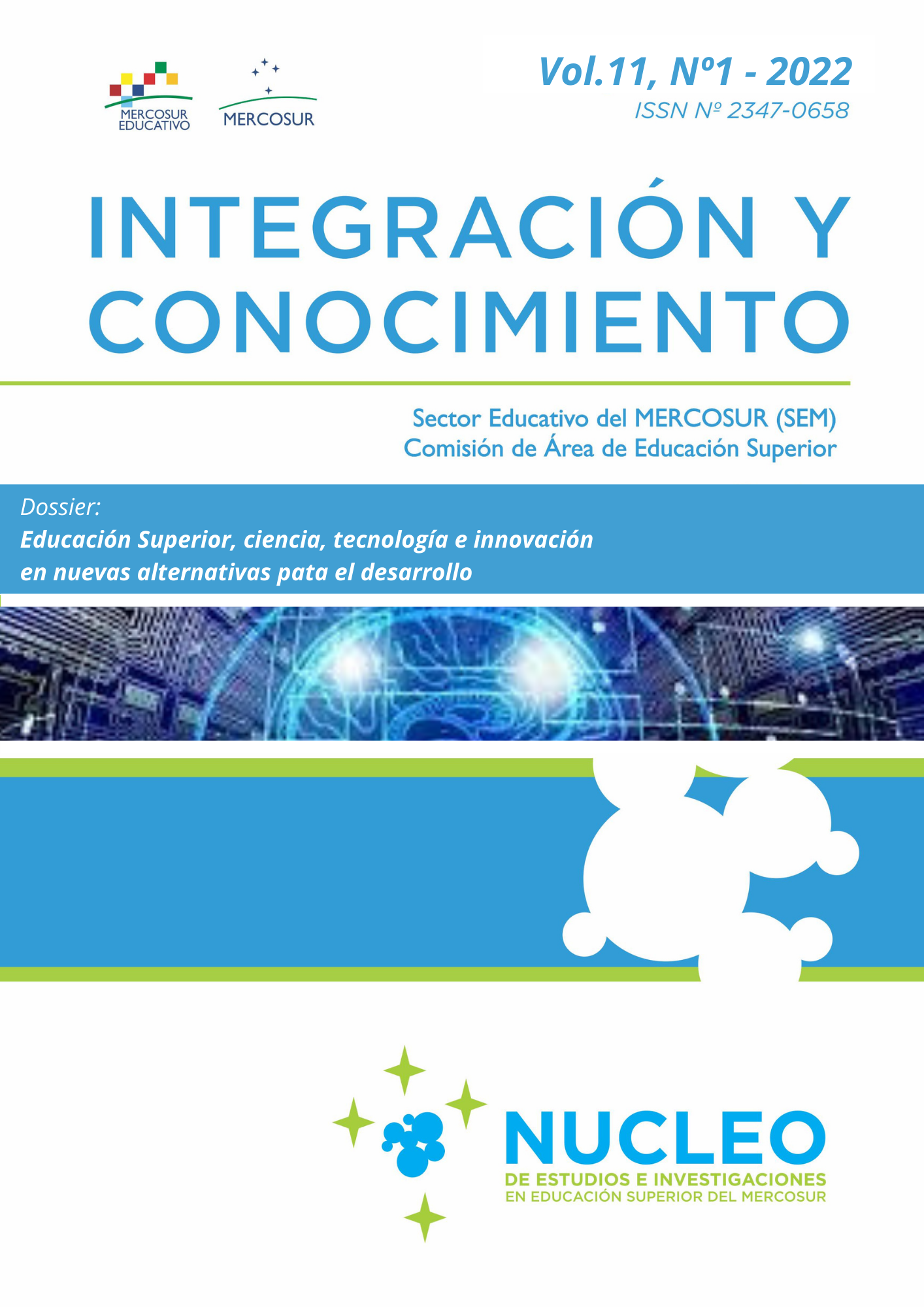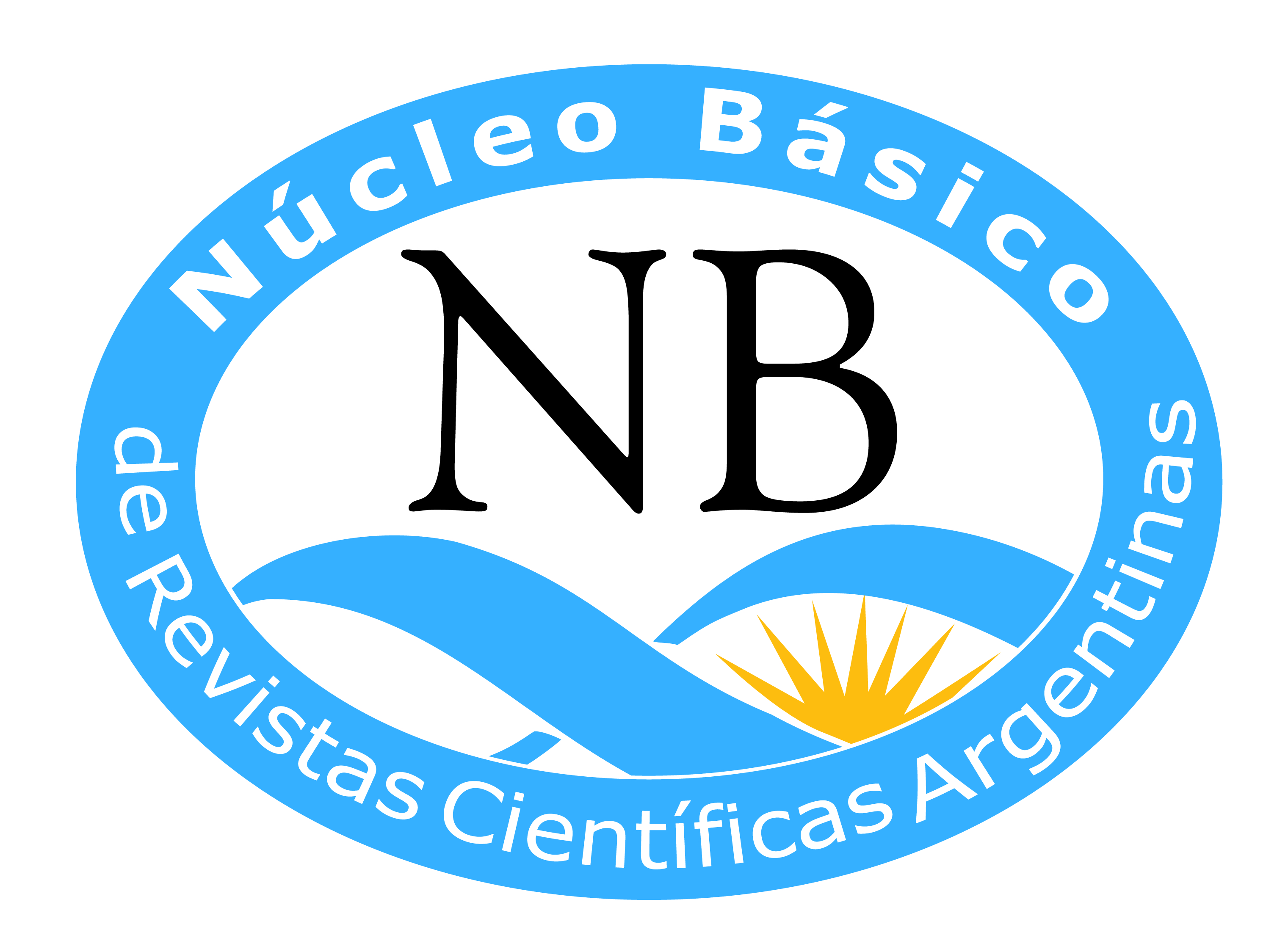University and local development: innovative processes at the third level of government
DOI:
https://doi.org/10.61203/2347-0658.v11.n1.36518Keywords:
development, university, research, action, participation.Abstract
The article analyzes how the University was able to carry out two participatory public policies developed at local municipalities in Uruguay, the Cultural and the Territorial Development Agendas. Both cases, through competitive funds, the Participation and Decentralization Study Group developed participatory processes that were promoted by the Office of Planning and Budget - from the Uruguayan government. At first sight, the investigation will be framing the work carried out by a team of researchers from the University as a way of relating the institution with the community and enrolled actively in the construction of social cohesion and development in a new scenario such as the third level of government, which is connected to a new way of conceiving public policy and development anchored in the territorial processes and dynamics themselves and empowering it with capacities also located in the territory. The experiences will be analyzed by the group of university researchers, considering Participation and Decentralization Study Group itself as a product of the territorial decentralization policy carried out by the University of the Republic, as one of the direct results of the Program “Strengthening the Quality of Research” Finally, it will reflect the role of the University and the use of these research methodologies. At this point, it is expected that higher education, research and innovation will take part actively in this field.
Downloads
References
Alburquerque, F. (2015). El enfoque del desarrollo económico territorial. En P. Costamagna y S. Pérez Rozzi. (Coord.), Enfoque, estrategias e información para el Desarrollo Territorial. Los aprendizajes desde ConectaDEL (pp. 13-43). Buenos Aires: ConectaDEL.
Alburquerque, F. y Pérez Rozzi, S. (2013). El desarrollo territorial: Enfoque, contenido y políticas. Documento de trabajo ConectaDEL. Recuperado de http://www.conectadel.org/wp-content/uploads/downloads/2013/09/EL-ENFOQUE-SOBRE-EL-DESARROLLO-TERRITORIAL-doc-Mesa-de-Programas.pdf
Arocena, J. (2002). El desarrollo local: un desafío contemporáneo. Montevideo: Taurus.
Barreiro, F. (2000). Desarrollo desde el territorio. A propósito del desarrollo local. Recuperado de http://biblioteca.municipios.unq.edu.ar/modules/mislibros/archivos/Barreiro.pdf
Berger, M.; Burjel, T.; Francia, B.; Hernández, M. J.y Rodríguez, J. (2020). Agendas Municipales de Desarrollo Territorial. Montevideo, Uruguay: OPP. Recuperado de https://www.opp.gub.uy/sites/default/files/documentos/2020-02/7_21_FEB_AMDT
_2020_0.pdf
Bisio, N. (comp.) (2017). La gestión pública descentralizada: una reflexión sobre las entidades institucionales territoriales en el litoral norte uruguayo. Montevideo: CISC-Udelar.
Bourdieu, P. (2008). Los usos sociales de la ciencia. Bs. As: Ed. Nueva Visión.
Calderón, F. y Loayza, N. (2002). Notas sobre desarrollo humano y sociología del actor. Anuario social y político en América Latina y el Caribe, 5, 48-56.
Cetrulo, R. (1986). Investigación acción participación: debate Carlos Rodrigues Brandao y Orlando Fals Borda. Montevideo: Instituto del Hombre.
CIMAS (2010). Manual de Metodologías Participativas. Madrid: Autor.
Costamagna, P. y Larrea, M. (2017). Actores Facilitadores del desarrollo territorial. Una aproximación desde la construcción social. País Vasco: Orkestra- Instituto Vasco de Competitividad. Fundación Deusto.
Diez, A. (2013). El debate entre “estructuralismo” y “teoría de la dependencia” desde la Revista Desarrollo Económico. Opción, 29(70), 9-30.
Garretón, M. (2012). Neoliberalismo corregido y progresismo limitado. Los gobiernos de la concertación en Chile, 1990-2010. Santiago de Chile: Editorial ARCIS-CLACSO-PROSPAL.
Ley N° 18567 (2009). Recuperado de https://www.impo.com.uy/bases/leyes/18567-2009/6
Ley N° 19272 (2014). Recuperado de https://www.impo.com.uy/bases/leyes/19272-2014
Max-Neef, M; Elizalde, A. y Hopenhayn, M. (1986). Desarrollo a escala humana: una opción para el futuro. Santiago: Biblioteca CF+S.
Morín, E. (2004). La cabeza bien puesta. Repensar la reforma. Reformar el pensamiento. Buenos Aires: Nueva Visión.
Narbondo, P., et al (2010). Encrucijada 2010: la política uruguaya a prueba. Instituto de Ciencia Política. Montevideo: Universidad de la República.
Noboa, A. (Coord.). (2019). Conocer lo social III: metodologías emergentes. Montevideo: Fundación de Cultura Universitaria.
Noboa, A.; Bisio, N.; Suárez, M. y Robaina, N. (2013). Participación ciudadana. La gestión pública de los Presupuestos Participativos vista desde sus protagonistas. Salto: Departamento de Ciencias Sociales Regional Norte-UdelaR.
Oficina de Planeamiento y Presupuesto -Unión Europea. (2012). Programa de capacitación en desarrollo territorial integral. Montevideo: Proyecto Forte, Programa de Cohesión Social y Territorial «Uruguay Integra» OPP/UE - Área de Políticas Territoriales-CLAEH.
Oficina de Planeamiento y Presupuesto. (2020). Agendas Municipales de Desarrollo Territorial. Serie: Síntesis Metodológica. Montevideo: Autor.
Oroño, A. (2010). Los municipios en marcha. La descentralización local y los desafíos de su implementación. Montevideo: OPP. Friedrich Ebert Stiftung.
Plan Cultural de Barcelona. (1998). Recuperado de http://www.bcn.cat/plaestrategicdecultura/
castella/plan.html
Programa de las Naciones Unidas para el Desarrollo (PNUD). (2010). Informe Regional sobre Desarrollo Humano para América Latina y el Caribe 2010: Actuar sobre el futuro: romper la transmisión intergeneracional de la desigualdad. San José, C.R.: Programa de Naciones Unidas para el Desarrollo.
Rodríguez-Miranda, A. (2006). Desarrollo económico territorial endógeno. Teoría y aplicación al caso uruguayo. Serie Documentos de Trabajo, DT 2/2006. Montevideo: Instituto de Economía-FCEA-Universidad de la República.
Rodríguez Villasante, T. (2015). Metodologías participativas. Sociopraxis para la creatividad social. Madrid: Red Cimas.
Rostow, W. (1959). The stage of economic growth. A non communist manifest. Cambridge: USA.
Sen, A. (2000). Desarrollo y libertad. Buenos Aires. Buenos Aires: Editorial Planeta.
Sen, A. (2010). La idea de la justicia. Madrid: Taurus.
Suárez, M.; Pou, L.; Negrin, R; y Alonso, F. (2019). Procesos y Metodologías Participativas. Reflexiones y experiencias para la transformación social. Recuperado de https://docer.com.ar/doc/nx1c000
Suárez Elías, M. (Comp.). (2015). Pensar la Democracia Participativa. Salto: Fundación de Cultura Universitaria. Recuperado de http://www.gepade.edu.uy/
Suárez Elías, M. (2021). Teoría y práctica de las metodologías participativas. Análisis de su utilización para la elaboración de agendas de desarrollo territorial en Uruguay. Revista De Prácticas y Discursos, 10(15), 1-20.
Streeten, P. (1986). Lo primero es lo primero. Satisfacer las necesidades humanas básicas en los países en desarrollo. Madrid: Editorial Tecnos.
Torres, A. (2019). La sistematización como investigación participativa. En P. Paño, R. Rébola y M. Suárez (Coord.), Procesos y Metodologías Participativas. Reflexiones y Experiencias para la transformación social (pp.74-92). Salto: CLACSO-UDELAR.
Valcárcel, M. (2006). Génesis y evolución del concepto y enfoques sobre el desarrollo. Documento de Investigación. Lima. Recuperado de https://www.uv.mx/mie/files/2012/10/SESION-6-Marcel-Valcarcel-Desarrollo-Sesion6.pdf
Varios Autores. (2019). Informe Consultoría Agendas Culturales- OPP 2019 inédito.
Veneziano, A. (2009). Descentralización, Desarrollo Local, Participación Ciudadana y Reforma del Estado: una vinculación pendiente. Montevideo: FCS-UdelaR –CSIC. Ediciones ORBE.
Zorro-Sánchez. C. (2010). El potencial humano fundamento del desarrollo, y la agencia instrumento para hacerla realidad. III Conferencia Latinoamericana y del Caribe sobre Desarrollo Humano y el enfoque de Capacidades, Bogotá, Colombia.
Downloads
Published
Issue
Section
License

This work is licensed under a Creative Commons Attribution-NonCommercial-ShareAlike 4.0 International License.
Authors who have publications with this journal accept the following terms:
a. Authors shall retain their copyright and guarantee the journal the right of first publication of their work, which shall simultaneously be subject to the Creative Commons License of Recognition which allows third parties to share the work as long as its author is indicated and its first publication is this journal.
b. Authors may adopt other non-exclusive licensing agreements for the distribution of the published version of the work (e.g., depositing it in an institutional telematic archive or publishing it in a monographic volume) provided that the initial publication in this journal is indicated.
c. Authors are allowed and encouraged to disseminate their work via the Internet (e.g. in institutional telematic archives or on their website) after publication of the article, which may lead to interesting exchanges and increased citations of the published work. (See The Effect of Open Access).



